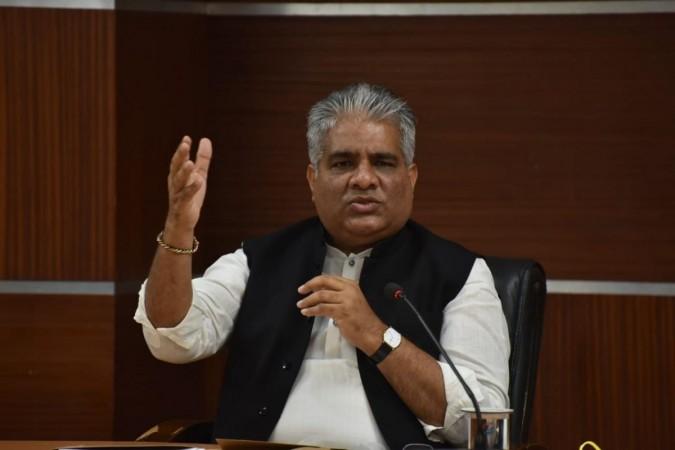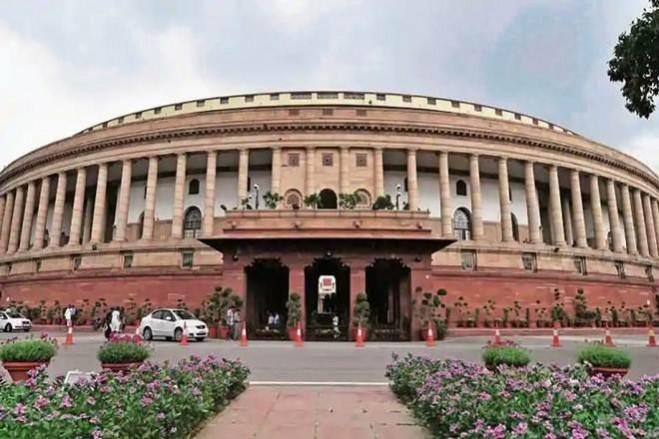Two amendment bills were introduced by the Environment, Forests and Climate Change Ministry that have been criticized by environmentalists as being “detrimental” for the environment and wildlife.
On Thursday, Environment Minister Bhupender Yodav introduced Biological Diversity (Amendment) Bill, 2020 and another one amending the Wild Life (Protection) Act, 2002. Both were introduced in the Lok Sabha on Friday. The opposition parties created a lot of noise over the SIT investigation/investigation into the Lakhimpur Kheri incident. Both cases were adjourned quickly and there was no discussion.

According to the government, the biodiversity amendment bill was introduced after Indian system of medicine practitioners, researchers, and the seed industry flagged compliance burden. The bill to seek amendment in Wildlife Act was necessary because of the requirement vis a-vis Convention on International Trade in Endangered Species of Wild Fauna and Flora.
The text of the bill introduced in the Parliament claimed that the stakeholders wanted reduced compliance burden “in order to encourage a conducive environment for collaborative research and investments, simplify patent application process, widen the scope of levying access and benefit sharing with local communities and for further conservation of biological resources”.

In case of the amendments to wildlife protection act, the bill text claimed that the government proposes to set up Standing Committees of State Boards of Wildlife that will function like the National Board for Wildlife, which is responsible for monitoring protected areas in the country and awarding or denying permission to projects in light of its threat to wildlife.
IANS wanted to hear from experts about the bills.
Kanchi Kohli (researcher at the Centre for Policy and Research) pointed out that these amendments must be explained and discussed in detail within and outside of the Parliament. “There are important changes such as including the NITI Aayog onto the NBWL. Recent NITI Aayog infrastructure expansion proposals are in direct conflict to some of the most sensitive and ecologically fragile areas in India, including the Andaman Nicobar Islands and Lakshadweep Islands. This would allow the NITI Aayog direct influence on the decisions of NBWL, something that may not be desirable.
Legal advocacy firm, Legal Initiative for Forest and Environment (LIFE), described it as “a Bill that aims to facilitate destruction of India’s Biodiversity and people’s right”. It tweeted: “The main goal of the Bill is not to conserve, protect biodiversity, knowledge of the local communities, but to facilitate trade in biodiversity. These amendments are totally contrary to the Biological Diversity Act 2002’s aim and purpose.
LIFE also noted that the Biodiversity bill exempted medicinal plants grown in cultivation from the act’s purview, but it is difficult to discern which plants are wild and which have been cultivated.
“This provision, although it appears benign on the surface, will only allow large businesses to evade either the requirement of both, before approval or share in the benefit with local community,” said the initial assessment statement of LIFE.
Kohli said that the WLPA was a law that has been well understood by experts, even though the clauses relating to wildlife trade and protected areas have far-reaching implications. The Covid-19 pandemic has put a spotlight on Zoonotics. It directly speaks to the proposed law’s changes to regulate international trade through a section.
She stated that the management mechanisms could benefit from incorporating this aspect and also reconciling them to the Biological Diversity Act, which is also being discussed in the Parliament.
Jairam Ramesh, Congress leader, protested Friday that the government had referred the Bill not to the Parliamentary Standing Committee but to a Select Committee, a day after Environment Minister introduced the Biological Diversity (Amendment) Bill 2021 in Lok Sabha.

